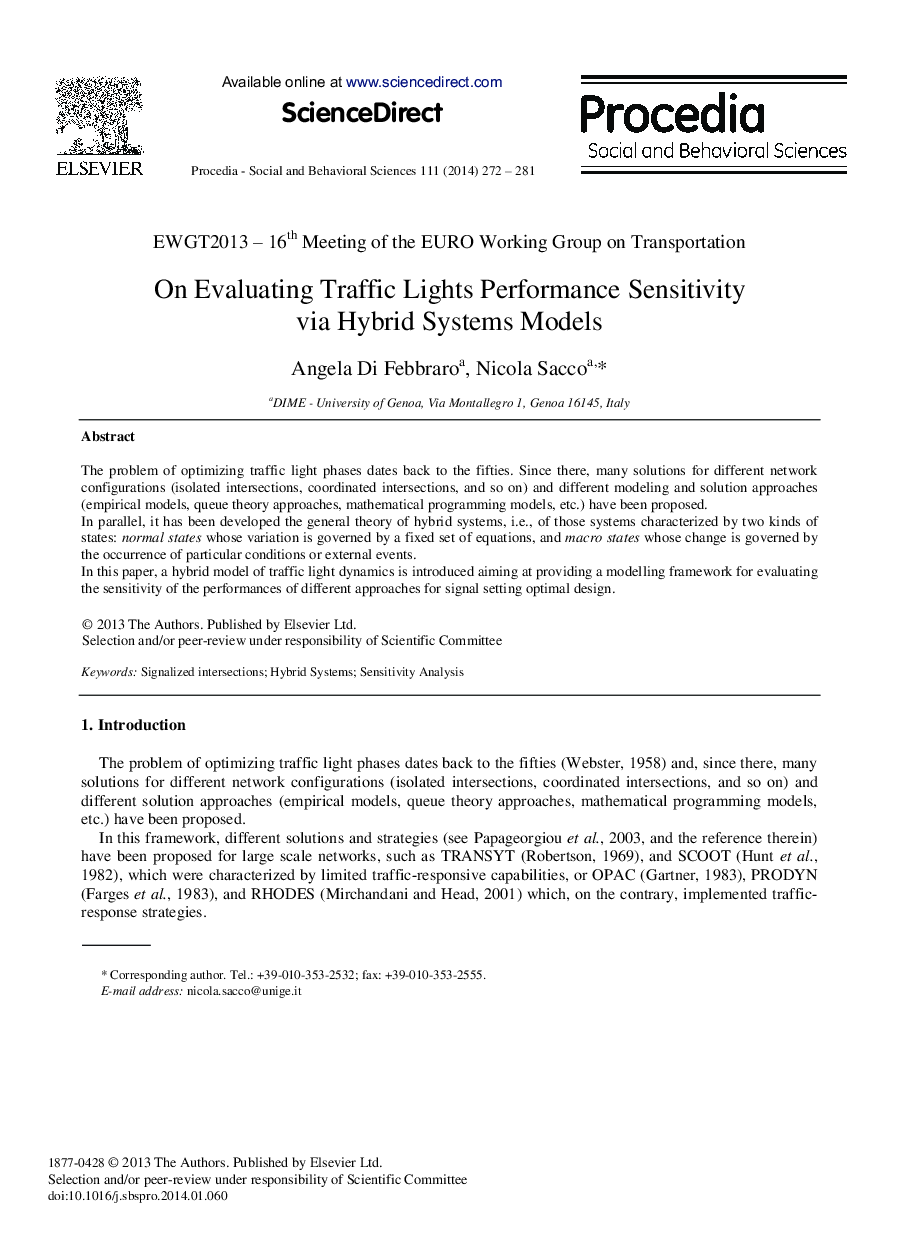| Article ID | Journal | Published Year | Pages | File Type |
|---|---|---|---|---|
| 1115913 | Procedia - Social and Behavioral Sciences | 2014 | 10 Pages |
The problem of optimizing traffic light phases dates back to the fifties. Since there, many solutions for different network configurations (isolated intersections, coordinated intersections, and so on) and different modeling and solution approaches (empirical models, queue theory approaches, mathematical programming models, etc.) have been proposed.In parallel, it has been developed the general theory of hybrid systems, i.e., of those systems characterized by two kinds of states: normal states whose variation is governed by a fixed set of equations, and macro states whose change is governed by the occurrence of particular conditions or external events.In this paper, a hybrid model of traffic light dynamics is introduced aiming at providing a modelling framework for evaluating the sensitivity of the performances of different approaches for signal setting optimal design.
